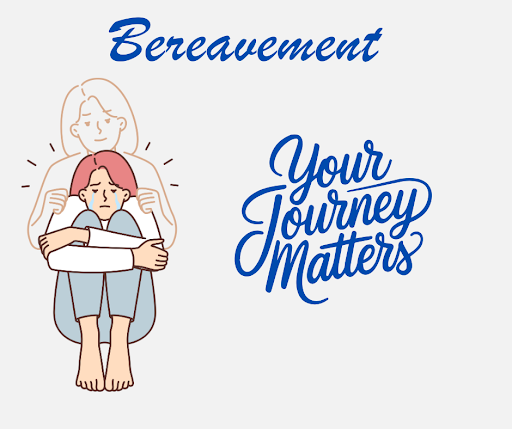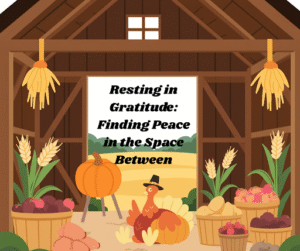Bereavement marks the beginning of a journey filled with grief, transition, and self-discovery. When this journey is the loss of a spouse, it is not just the absence of a partner—it can feel like losing a part of yourself, your shared dreams, and even your identity as a wife and life partner. This journey includes acknowledging your loss’s emotional, psychological, and even societal impact.
The Unique Challenges as Widows
Losing a spouse often comes with unique challenges. It’s a life-changing event that upends our lives and affects our daily processes. While the grief intensity will diminish, the impact of the loss can be felt for months and years. Often, it is more about integrating the loss into a new way of life than getting over it. While our society tends to recognize the initial loss and grief, it often wants us to move on quickly and may not acknowledge the long-term impact.
Widow Challenges you may experience:
- Loneliness and Isolation – We can isolate ourselves, or sometimes life isolates us. Previous “couples” things we did no longer feel good. We are often no longer invited to things or feel awkward going to things we did together as a couple. Friendships change or may even dissolve. Family dynamics change and can also lead to feelings of loneliness that no one understands.
When this happens, here are a few things to lessen the isolation:
- Start something new for you – this could be something you’ve always wanted to do. This will build your confidence. A new hobby, class, or personal project. Something that doesn’t share the same memories.
- Reconnect with someone in a different season of life – Reach out to an old friend, family you’re not close to, a neighbor, or even someone you’ve lost touch with. New bonds or rekindled ones can bring unexpected comfort and connection.
- Create your own routines – Things like nature walks, solo dates, coffee shop visits, or lighting a candle can help anchor and honor your journey.
- Pressure to “Move On” – We may find ourselves in awkward conversations where people expect us to be ready to date, stop talking about it, or other indications they want us to move forward. People may unintentionally suggest that a widow should “be strong” or “find happiness again” before she is ready to do anything other than grieve. Remember, this is your journey, and you get to take the time you need.
- Secondary Losses – These losses can be equally as painful. We can experience many other losses that can be unexpected and surprising. Some losses include: a loss of, our future plans, family, shared friendships, traditions, stability and more.
- Acknowledge the “invisible” grief – It’s normal and OK to mourn the secondary losses. These dreams, future plans, routines, and roles that once gave life direction and stability. These losses are real and valid, even if others don’t always see them.
- Name what’s changed – Writing down or speaking aloud the specific things you’ve lost—like shared traditions or stability—can help you process them and begin to understand the emotional weight they carry.
- Give yourself permission to feel all of it – There’s no timeline for grieving the life you expected. Allow yourself the space to feel sad, angry, or uncertain without guilt or explanation.
Navigating Bereavement as a Widow/Widower
There is no “right way” to grieve, and it is not something one simply gets over. This is your unique journey through grief and bereavement. It’s a lifelong learning process to carry and live with the loss while finding purpose and meaning in your life. We find new ways to dream and fulfill life’s roles as we redefine who we are and what we want to do in our lives without our partners.
Navigating Bereavement
- Seek Support – Whether through friends, family, widow support groups, grief communities, coaching, or therapy, connection can help ease isolation and help you sort through the feelings and emotions.
- Allow the Process to Unfold In Its Own Time – Bereavement has no set timeline. There’s no deadline to meet. You do not cross off chores in a grief “to-do” list. No magic timeline or when you’ll be “done” exists. Giving yourself the time and permission to feel emotions as they come is part of healing and moving forward. You get to travel at your own pace. If you think you are struggling, asking for assistance is courageous and ok.
- Honor the Love That Remains – Keeping the spouse’s memory alive through intentional traditions, journaling, sharing stories, and memories can be comforting. Do what makes sense for you and your family—taking time to honor them on those trigger days like birthdays, anniversaries, and holidays. Here’s an article on how to deal with those Darn Firsts.
- Embrace Change at Your Own Pace – The myriad changes associated with losing a spouse can be overwhelming. Take it at your own pace. We often hear, find your “new normal”. As Jeni says, “Normal is merely a setting on the washing machine.” The “new normal” simply means finding your way to new routines and living without your loved one. Over time, many widows find ways to redefine their identity and create a new life while still holding love for their spouse.
- Explore Personal Growth – Take time to determine what you’d like to do, see, and experience can be a way of moving through bereavement. To find a renewed purpose, consider what brings you joy or happiness. You can try volunteering, rediscover old interests, take a class, join a book club, or start a hobby.
Bereavement for widows is not about “getting over it” or forgetting about them; it’s about moving forward. We learn to live with loss while embracing what’s next and finding hope in the possibilities. If you are a widow or widower, know that your grief is valid, your journey is your own, and you are not alone.
Peace & blessings to you.
Teresa & Jeni
PS: For additional support, you can download our free copy of 10 Ways to Move Forward After Loss
The First Days: Coping with Life After Loss is a resource for the first days after a loss – available on Amazon in paperback.
My Journey as a Widow: A Widow’s First Journal is a follow-up journal for processing complex emotions and moving forward with hope. It is available in paperback on Amazon.
Follow us on Social Media:
Facebook: https://www.facebook.com/TornInHalfwidows/
LinkedIn: https://www.linkedin.com/company/torn-in-half/




